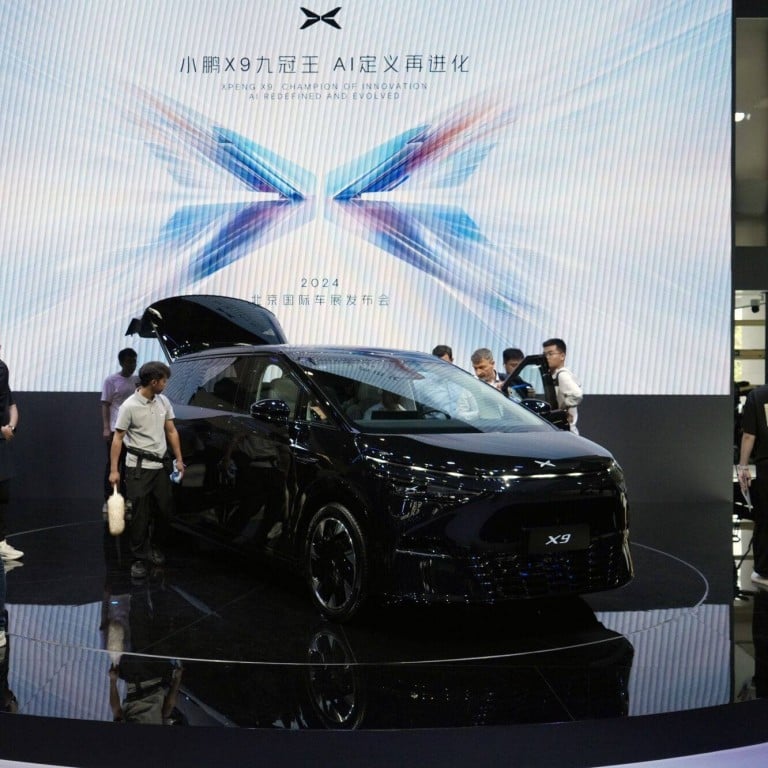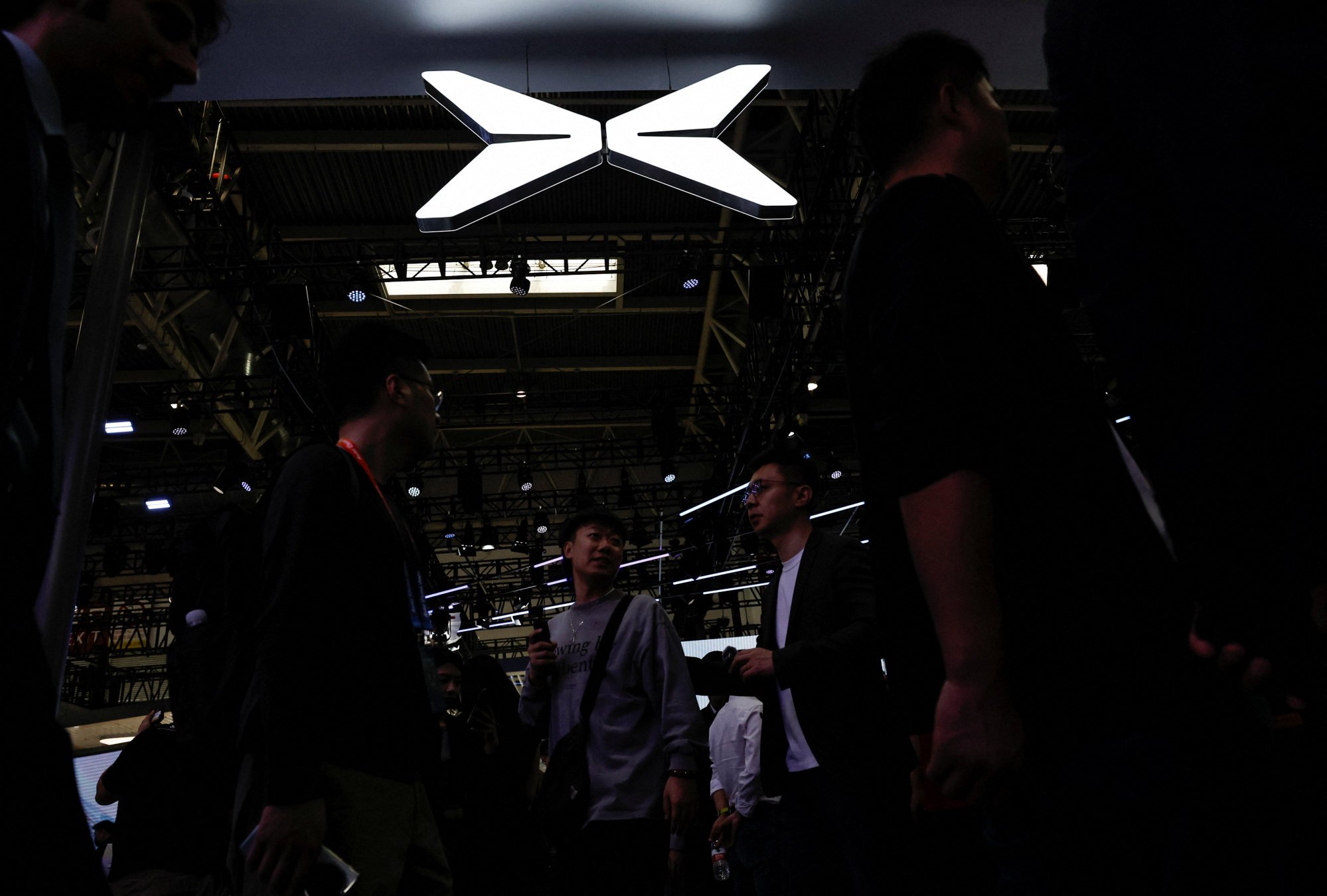
Chinese EV maker Xpeng says partnership with Nvidia unaffected by US trade sanctions
- Xpeng said local solutions for car chips have emerged despite not being as advanced as imports, but it would keep its options open with domestic suppliers
- As of June last year, Nvidia – which is not allowed to ship its advanced AI chips to China – had about a 52 per cent share of the global navigate-on-autopilot market
“We’re very happy with our collaboration with Nvidia and other silicon partners,” Brian Gu Hong-di, vice-chairman and president of Xpeng Motors, said during a press conference on Thursday on the sidelines of the 2024 Beijing Auto Show.
Gu said local solutions for car chips have emerged despite not being as advanced as imports, adding that Xpeng is keeping its options open with domestic suppliers.
Although Nvidia’s autonomous driving chips are the predominant hardware for supporting assist-driving and more advanced self-driving capabilities developed by carmakers in China, mainland suppliers are quickly catching up amid the country’s drive for self-reliance in semiconductors, especially given that most auto chips do not require cutting-edge manufacturing technologies.
Nissan CEO to respond to EV rivalry in China with bigger line-up, output targets
As of June last year, Nvidia – which is not allowed to ship its advanced AI chips to China due to US trade sanctions – had about a 52 per cent share of the global navigate-on-autopilot market, signing cooperation agreements with 25 automotive original equipment makers globally, according to data from Gasgoo Institute, a Shanghai-based research company.
Nio’s flagship ET5 and ES7 sedans, Li Auto’s L9 model and Xpeng’s G9 all come equipped with Nvidia’s Orin chips. Auto chips are seen by Washington as a less sensitive area of the semiconductor market when it comes to setting trade sanctions.
Xpeng’s Gu also said that the firm’s smart-driving capabilities for more complex urban traffic environments outshone its competitors. He said the gap between Xpeng and its competitors in city smart driving is “widening”.
“This year, obviously, we want to leverage AI, leveraging large [language] models,” said Gu.
Xpeng has 2,000 engineers working on autonomous driving technologies, ranging from software and architecture to data optimisation, and 3,000 people employed in generative AI.

It will invest 3.5 billion yuan (US$483 million) this year to develop generative AI technologies, which are sweeping every industry from autos and corporate services to consumer electronics.
In 2022, China sold about 7 million smart passenger vehicles equipped with assisted autonomous driving systems, which translates into a market penetration rate of 35 per cent.
In the first half of 2023, that figure rose to almost 43 per cent, according to data from China’s Ministry of Industry and Information Technology.
Autonomous driving companies have been struggling to eke out a profit in China due to heavy costs and low revenue from maintaining large robotaxi fleets.
Baidu, which operates a robotaxi fleet in several cities, said its self-driving unit will focus on generating revenue and profits after burning cash for years.
Smaller players such as WeRide and Pony AI have joined bigger carmakers to monetise software services as they continue to operate driverless robotaxis at a loss.
Xpeng’s Gu paints a realistic outlook, saying it will take longer than five years before robotaxis become a “real commercial operation”.

